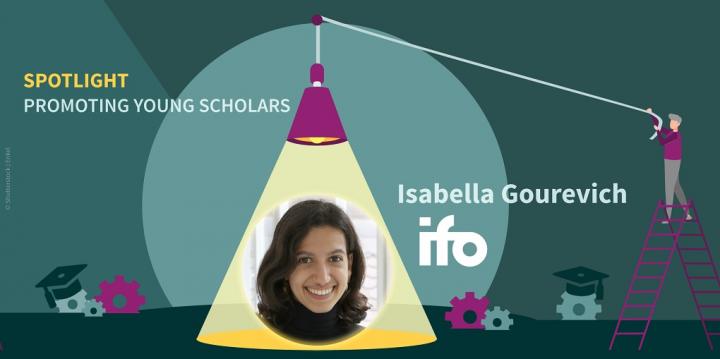Spotlight: Promoting Young Scholars - Isabella Gourevich
She almost went over to the Dark Side. For years, she was sure that she wanted to study Business Administration. But luckily, before taking that fateful step, she attended a lecture to introduce Economics to prospective students. The discussion about monetary systems and global value chains mesmerized her. Three days before the deadline to commit to a career, she changed her mind. Now she is one of us.
Her passion for international trade was kindled further during a semester she spent in South Korea. The country’s journey from a poor, war-ravaged place to the highly developed, technologically advanced economy it is today was facilitated by its conscious pursuit of a strategic integration into the world economy. Its success serves now as a blueprint for countries not only in the region, but farther afield as well.
Isabella is keenly aware, however, that while the opportunities that emerge for countries from opening up are immense, there are also downsides. Her desire to understand both sides of this coin and the complexities of modern trade relations more deeply led her to pursue a Master’s degree in International Trade, Finance and Development at the Barcelona School of Economics.
When it came to choosing a place to work on her PhD, she saw the ifo Institute as exactly the right fir for her: a leading European economic research powerhouse where findings are directly linked to policy recommendations.
The step from there to Pillars was a no-brainer: here was an international project doing forward-looking theoretical and empirical research from different economic fields to help policymakers lay out a pathway to inclusive labor markets of the future.
During a previous stint at McKinsey & Company, Isabella saw how robotization and technological progress are disrupting and reshaping the German labour market, and how companies are adapting to it. But, as we live in a globalized and interconnected world, the effects of robotization are also impacting the corresponding trading partners (especially in developing countries), an issue that has received relatively little attention in academic research and political discussion. To help correct that, Isabella, together with Lisandra Flach and Andreas Baur, conducted an in-depth study on the impact robotization has on trade between Latin America and Europe.
A few months ago, Isabella got an opportunity to work in the Economic Research and Statistics Division of the WTO as a Short-Term Staff Member on a project evaluating the impact of the Trade Facilitation Agreement on trade flows. Working in a place where international trade policy is formulated gave her insights into the more pressing issues of modern trade relations, which she would like to address in her PhD dissertation. And after she completes her PhD, her top aspiration is to fully focus her work onto the intersection between academic research and policymaking.
Pillars can only wholeheartedly concur.
